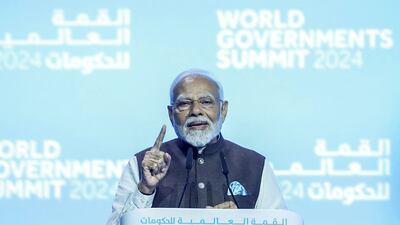Ministers from the International Energy Agency’s member countries have begun talks with India regarding its application to become a full member, the Paris-based agency said on Wednesday.
This in recognition of the country’s “strategic importance” in tackling global energy and climate challenges, the IEA said after ministerial meetings in Paris.
India, which joined the IEA as an association country in 2017, sent a formal request for full membership to IEA ministers in October 2023.
“India is the world’s fastest-growing major economy. Sustained growth needs energy security and sustainability,” said Indian Prime Minister Narendra Modi.
“We bring scale and speed, quantity and quality to every mission. I am sure that the IEA will benefit when India plays a bigger role in it.”
India, the world’s most populous country and its fifth-largest economy, aims to achieve net-zero emissions by 2070 and meet 50 per cent of its electricity requirements from renewable energy sources by the end of this decade.
The Indian government has estimated that the country’s shift to a low-carbon path will require more than $10 trillion in new investments by 2070.
The country is expected to be the largest source of oil demand growth between now and 2030, according to the IEA.
In the next three decades, India is poised to experience the “largest energy demand growth” of any country in the world as industrialisation and urbanisation surge, the agency said on Wednesday.
“This is a major milestone for international energy governance,” said IEA’s executive director Fatih Birol.
“India plays a crucial and growing role in the global energy economy. The world cannot plan for its energy future without India at the table.”
On Wednesday, the IEA’s ministers invited Latvia to become the agency’s 32nd member.
The IEA was created in 1974 to help co-ordinate a collective response to major disruptions in the supply of oil.
While oil security is a key focus area for the organisation, the IEA has also expanded into overall energy security, economic development and renewable energy.
Since 2015, the agency has opened its doors to major emerging countries to expand its global impact, and deepen co-operation in energy security, data and statistics, and the growing use of clean energy technologies.

